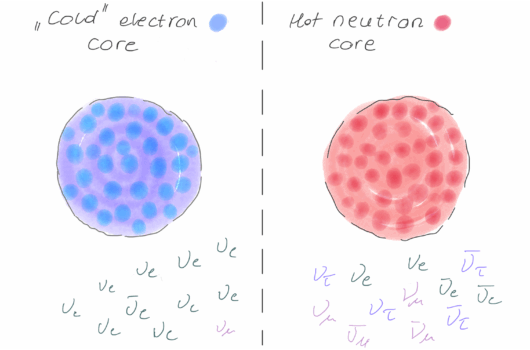Microscopic constraints for the equation of state and structure of neutron stars: a Bayesian model mixing framework
Microscopic constraints for the equation of state and structure of neutron stars: a Bayesian model mixing framework
View
Abstract
Bayesian model mixing (BMM) is a statistical technique that can combine constraints from different regions of an input space in a principled way. Here we extend our BMM framework for the equation of state (EOS) of strongly interacting matter from symmetric nuclear matter to asymmetric matter, specifically focusing on zero-temperature, charge-neutral, ![]() -equilibrated matter. We use Gaussian processes (GPs) to infer constraints on the neutron star matter EOS at intermediate densities from two different microscopic theories: chiral effective field theory (
-equilibrated matter. We use Gaussian processes (GPs) to infer constraints on the neutron star matter EOS at intermediate densities from two different microscopic theories: chiral effective field theory (![]() EFT) at baryon densities around nuclear saturation,
EFT) at baryon densities around nuclear saturation, ![]() , and perturbative QCD at asymptotically high baryon densities,
, and perturbative QCD at asymptotically high baryon densities, ![]() . The uncertainties of the
. The uncertainties of the ![]() EFT and pQCD EOSs are obtained using the BUQEYE truncation error model. We demonstrate the flexibility of our framework through the use of two categories of GP kernels: conventional stationary kernels and a non-stationary changepoint kernel. We use the latter to explore potential constraints on the dense matter EOS by including exogenous data representing theory predictions and heavy-ion collision measurements at densities
EFT and pQCD EOSs are obtained using the BUQEYE truncation error model. We demonstrate the flexibility of our framework through the use of two categories of GP kernels: conventional stationary kernels and a non-stationary changepoint kernel. We use the latter to explore potential constraints on the dense matter EOS by including exogenous data representing theory predictions and heavy-ion collision measurements at densities ![]() . We also use our EOSs to obtain neutron star mass-radius relations and their uncertainties. Our framework, whose implementation will be available through a GitHub repository, provides a prior distribution for the EOS that can be used in large-scale neutron-star inference frameworks.
. We also use our EOSs to obtain neutron star mass-radius relations and their uncertainties. Our framework, whose implementation will be available through a GitHub repository, provides a prior distribution for the EOS that can be used in large-scale neutron-star inference frameworks.





